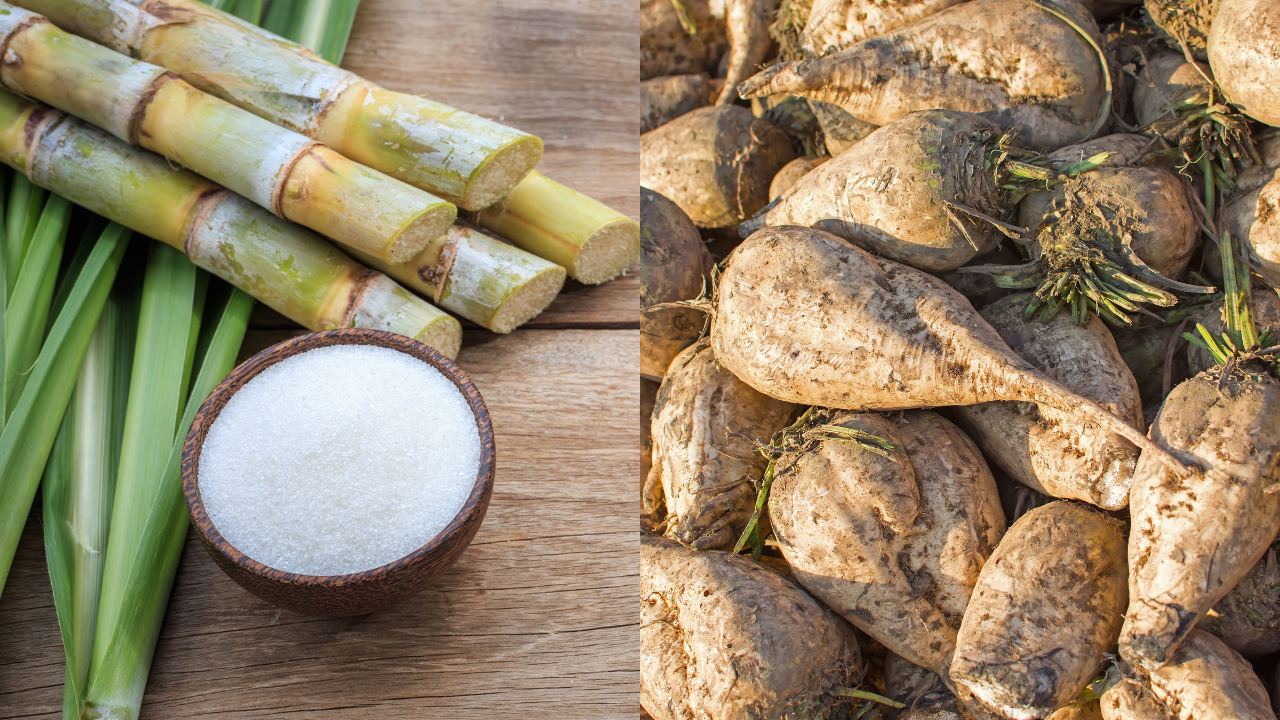The sourcing of beet sugar vs cane sugar affects farming impact in the sugar industry.
The sourcing of beet sugar vs cane sugar affects farming impact in the sugar industry.
Blog Article
A Comprehensive Check Out the Advantages and Uses of Beet Sugar Vs Cane Sugar for Sweetening Options
In the realm of sweetening, both beet sugar and cane sugar deal distinct advantages and cooking functions, albeit with comparable dietary accounts. While beet sugar flaunts a neutral taste suitable for different dishes, cane sugar enhances dishes with refined sugar touches.
Beginnings and Processing Techniques of Beet Sugar and Cane Sugar
Beet sugar and cane sugar, 2 primary sweeteners, originate from extremely unique plants and undergo different processing methods. Beet sugar is removed from the sugar beet, a root veggie, mainly grown in cooler climates. The processing entails cutting the beets to remove the juice, which is after that purified and crystallized right into sugar. This approach is reasonably reliable, enabling sugar recuperation from several phases of the procedure.
On the other hand, cane sugar originates from the sugarcane plant, an exotic grass. Its handling begins with gathering the cane, squashing it to get the juice, and after that steaming this liquid to develop sugar crystals. The continuing to be molasses-rich liquid can be re-boiled multiple times to create varying grades of sugar. This procedure, although rather similar in its goal, differs substantially in regards to the environmental problems required for cultivation and the first action in extracting sugar. beet sugar vs cane sugar. Each approach mirrors adaptations to the particular plant's natural habitats and residential properties.
Nutritional Comparison: Beet Sugar Versus Cane Sugar

When comparing the dietary material of beet sugar and cane sugar, it becomes evident that both kinds provide a comparable power worth. Each delivers about 4 calories per gram, largely as sucrose, which is a straightforward carb. This resemblance encompasses their absence of essential nutrients; neither sort of sugar has considerable amounts of vitamins or minerals. Both beet and cane sugar are 99.9% pure sucrose, making them virtually the same in regards to calorie content and nutritional profile.
Nevertheless, small differences might occur from the marginal micronutrient that stay after handling, though these are too small to effect general wellness. Cane sugar can retain traces of molasses, depending on the degree of refining, which might include tiny amounts of calcium, iron, and potassium. Beet sugar, on the various her latest blog other hand, generally goes through a process that eliminates these micronutrient more extensively, causing an also purer form of sucrose.
Culinary Uses and Flavor Profiles
In spite of their dietary similarities, beet sugar and cane sugar split notably in their culinary applications and flavor nuances. Beet sugar, originated from sugar beetroots, typically has a really neutral taste, making it a preferred choice in baking where it effortlessly incorporates without modifying the taste profile of various other active ingredients. beet sugar vs cane sugar. It liquifies quickly, which Full Report is useful in beverages and great desserts. On the various other hand, cane sugar, sourced from the sugarcane plant, typically lugs subtle tips of molasses, even in its polished kind. This can include a warm, caramel-like touch to dishes, enhancing dishes like cookies, cakes, and sauces where a richer taste is preferable.
Cooks and home cooks alike pick sugars based on these qualities. While both sugars work in a similar way in regards to sweet taste and physical properties, the mild flavor difference can affect the end result of a meal dramatically, leading the choice in between beet and cane sugar based on the preferred outcome in cooking developments.
Health Implications of Consuming Beet and Cane Sugars
Although beet sugar and cane sugar are commonly made use of reciprocally in cooking and baking, their wellness implications can vary subtly as a result of their unique processing approaches. Both sugars give regarding the exact same quantity of calories and carbs per tsp, essentially offering comparable power contributions without any inherent dietary benefits. However, the refining process for each and every sugar can alter the visibility of trace minerals and compounds, although these variations are commonly minimal and not considerable enough to influence one's health meaningfully.
The main wellness problem with both kinds of sugar refer to their contribution to extreme calorie consumption, potentially leading to weight gain, and connected illness like type 2 diabetes mellitus and heart disease when consumed in large quantities. Consequently, no matter the source, small amounts is crucial in consuming beet or cane sugars. Health professionals frequently suggest discover this info here limiting added sugars in any type of kind to preserve optimal health and wellness results.
Ecological Influence and Sustainability of Sugar Manufacturing

On the other hand, sugar beet processing often tends to create large amounts of pulp waste, which can be repurposed as pet feed or transformed into bioenergy, thereby reducing some environmental influences (beet sugar vs cane sugar). Inevitably, the sustainability of sugar manufacturing pivots on adopting more green farming strategies and waste monitoring methods to decrease the ecological footprint of both sugar kinds

Verdict
Beet sugar is remarkable for its sustainability and neutral preference, whereas cane sugar is prized for its rich flavor. Customers should think about these factors, along with the ecological effects of sugar production, to make enlightened options regarding sugar usage that align with cooking requirements and moral values.
Report this page